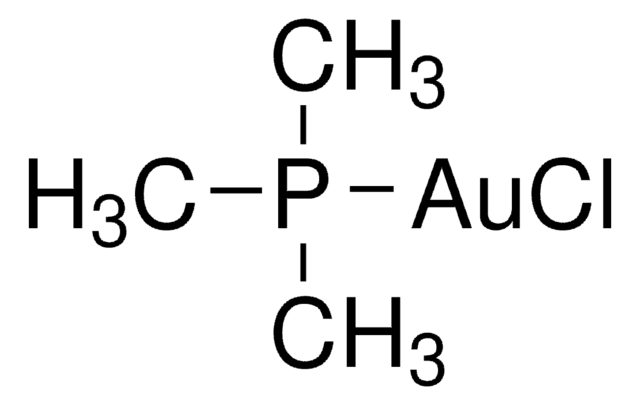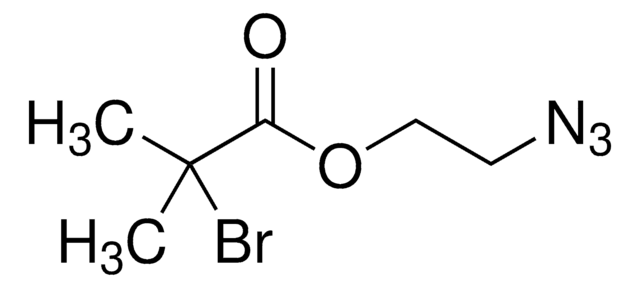252271
α-Bromoisobutyryl bromide
98%
Synonym(s):
2-Bromo-2-methylpropionyl bromide, BIBB
About This Item
Recommended Products
Assay
98%
form
liquid
refractive index
n20/D 1.507 (lit.)
bp
162-164 °C (lit.)
density
1.86 g/mL at 25 °C (lit.)
SMILES string
CC(C)(Br)C(Br)=O
InChI
1S/C4H6Br2O/c1-4(2,6)3(5)7/h1-2H3
InChI key
YOCIJWAHRAJQFT-UHFFFAOYSA-N
Looking for similar products? Visit Product Comparison Guide
General description
Application
- as atom transfer radical polymerization (ATRP) initiator for functionalization of hydroxyl groups present on the surface of graphene oxide
- to form an N-protected halodienamide which provided four- and five-membered lactams in the presence of copper (I) and a tertiary amine
- in preparation of polycaprolactone macroinitiator via reaction with oligomeric caprolactone diol and mesoporous silica nanoparticles with ATRP initiator anchored on the exterior surface
Signal Word
Danger
Hazard Statements
Precautionary Statements
Hazard Classifications
Eye Dam. 1 - Skin Corr. 1B
Storage Class Code
8A - Combustible corrosive hazardous materials
WGK
WGK 3
Flash Point(F)
>230.0 °F
Flash Point(C)
> 110 °C
Personal Protective Equipment
Certificates of Analysis (COA)
Search for Certificates of Analysis (COA) by entering the products Lot/Batch Number. Lot and Batch Numbers can be found on a product’s label following the words ‘Lot’ or ‘Batch’.
Already Own This Product?
Find documentation for the products that you have recently purchased in the Document Library.
Customers Also Viewed
Protocols
ARGET ATRP procedure facilitates PMMA polymer brush growth with surface cleaning and initiator monolayer deposition.
ARGET ATRP procedure facilitates PMMA polymer brush growth with surface cleaning and initiator monolayer deposition.
ARGET ATRP procedure facilitates PMMA polymer brush growth with surface cleaning and initiator monolayer deposition.
ARGET ATRP procedure facilitates PMMA polymer brush growth with surface cleaning and initiator monolayer deposition.
Our team of scientists has experience in all areas of research including Life Science, Material Science, Chemical Synthesis, Chromatography, Analytical and many others.
Contact Technical Service










![Bis[2-(2-bromoisobutyryloxy)undecyl] disulfide 97%](/deepweb/assets/sigmaaldrich/product/structures/340/293/c46f0349-d50c-48d8-899f-e42b09fae485/640/c46f0349-d50c-48d8-899f-e42b09fae485.png)